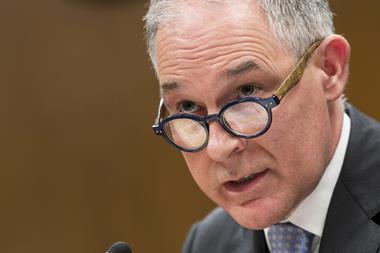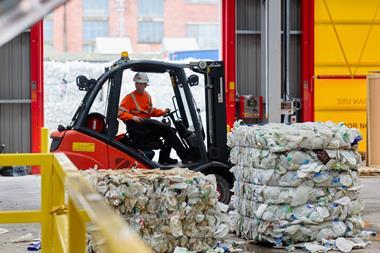The Trump administration’s approach to conflicts of interest is emblematic of its problem with evidence
When Donald Trump entered the White House in January, scientists were worried. He appeared not to value facts, data or science, and they feared his loyalties to industry would hold sway over policy decisions. As 2017 draws to an end, scientists now have several examples to justify their alarm, especially the situation at the Environmental Protection Agency (EPA).
It’s fitting that EPA chief Scott Pruitt picked Halloween to spook researchers by officially announcing that anybody whose work is funded by his agency is prohibited from serving on three of its key scientific advisory boards. Having an active EPA grant represents a conflict of interest, he argued.
Either Pruitt doesn’t understand what a conflict of interest is, or he’s intentionally distorting things. He claims that receiving EPA grants interferes with scientists’ ability to serve the EPA objectively because they are not financially independent of the agency. In nearly the same breath, Pruitt appointed officials who work for the American Chemistry Council (ACC) to two of these same EPA committees.
The apparent intent is to give industry-backed scientists a louder voice at the agency with which to advocate for industry-friendly policies. The ACC has welcomed the new policy, and the group’s chief executive said it will help ensure EPA review panels are ‘well balanced’, and that board members are ‘free of any disqualifying conflicts of interest’.
But it’s nonsensical to argue that carrying out EPA-funded environmental research means one cannot fairly weigh in on scientific issues facing the agency. And it’s illogical to suggest that representatives of a chemical company trade group, whose members are subject to the EPA’s regulations, are any more independent.
The Trump administration has had a lousy, if not non-existent, relationship with the scientific community. The president has repeatedly appointed industry figures with virtually no scientific background to key science jobs, and he has yet to appoint a science adviser. In fact, Trump has taken longer to find a science adviser than any other US president in the four decades since the job has existed. The previous record-holder was former President George W Bush, who took about five months.
In the new year, that gap needs to be filled. Science advice is desperately needed inside the White House, but it could be nearly impossible to find a candidate that both the administration and the research community will support.












No comments yet